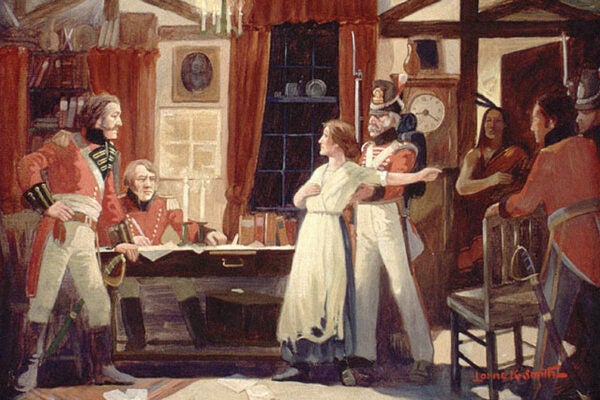Fifty years ago this week, on August 8, 1974, United States President Richard M. Nixon announced that he would resign the presidency because “he no longer [had] a strong enough political base in the Congress to justify continuing [the] effort” to complete his term of office after two years of debates over the Watergate break-in. On August 9, he formalized his resignation, sending a letter on White House letterhead to Secretary of State Henry A. Kissinger. The missive contained a single sentence: “I hereby resign the Office of the President of the United States.” With those few words, Nixon ended his tenure as 37th President of the United States, a move he said would “begin healing the wounds of this nation.” We offer this collection of stories, all based on peer-reviewed scholarship and all free to read and download, to help our readers understand Nixon’s politics and policies, the significance of his resignation, and how his legacy has shifted over time.
June 16, 2022
No other personality appeared more often on the cover of Mad during the first fifty years of the satirical magazine’s life.
June 25, 2024
By law, all communications seen and/or touched by a United States president are supposed to be preserved. Reality—and executive privilege—is a lot messier.
August 11, 2015
Newly declassified snippets of Haldeman’s diary highlight how much we still don’t know about Watergate and the Nixon Administration
September 8, 2022
President Ford’s unconditional pardon of Richard Nixon created political controversy. It also tarnished Ford’s own reputation with the American public.
November 5, 2018
Richard Nixon's voters had a lot in common with Trump's, especially in their idealization of the self-sufficient, independent American businessperson.
August 27, 2021
It might have been a ploy to garner Democratic votes, but the president took his dream team seriously.
October 7, 2019
Nixon targeted Foreign Service officers who served in China in the 1940s as communist sympathizers and "fellow travelers." Then he opened trade relations.
July 12, 2017
50 years ago, Republican politicians proposed, and sometimes won, welfare reform programs that were actually more comprehensive.
December 2, 2016
A lot about the 2016 presidential election has been unprecedented, but this isn’t the first time we’ve seen calls for recounts in some states.
January 15, 2018
One scholar's opinion: the Twenty-Fifth Amendment is a Pandora's Box.
September 23, 2016
Ever since Kennedy-Nixon, televised debates have given viewers an insight into candidates' policies—and their personalities, too.
January 5, 2015
Did introversion harm Presidents Nixon and Carter's ability to perform on the job?
July 14, 2016
President Obama made news for being the first President to publish a scholarly article while in office. Many past Presidents can be found in JSTOR.
January 19, 2017
Got impeachment? Not much. In American history, there have only been a total of 19 impeachment trials in the U.S. Senate.
October 11, 2016
Government distrust has been on the decline for decades, but a recent poll shows a slight increase.
February 26, 2018
In the early years of food stamps the goal wasn't necessarily to feed America's poor. The idea was to buttress the price of food after the decline in crop prices had created a crisis in rural America.
Have a correction or comment about this article?
Please contact us.
Please contact us.



















